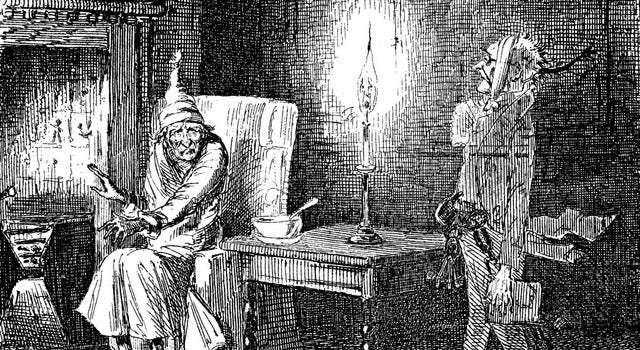Link by Link, Yard by Yard
Our lives are made up not of spectacular transformations, but choices that accumulate while we're not looking.
Again the spectre raised a cry, and shook its chain and wrung its shadowy hands. “You are fettered,” said Scrooge, trembling. “Tell me why?”
“I wear the chain I forged in life,” replied the ghost. “I made it link by link and yard by yard; I girded it on of my own free wil, and of my own free will I wore it.” —A Christmas Carol
“Indeed the safest road to …



